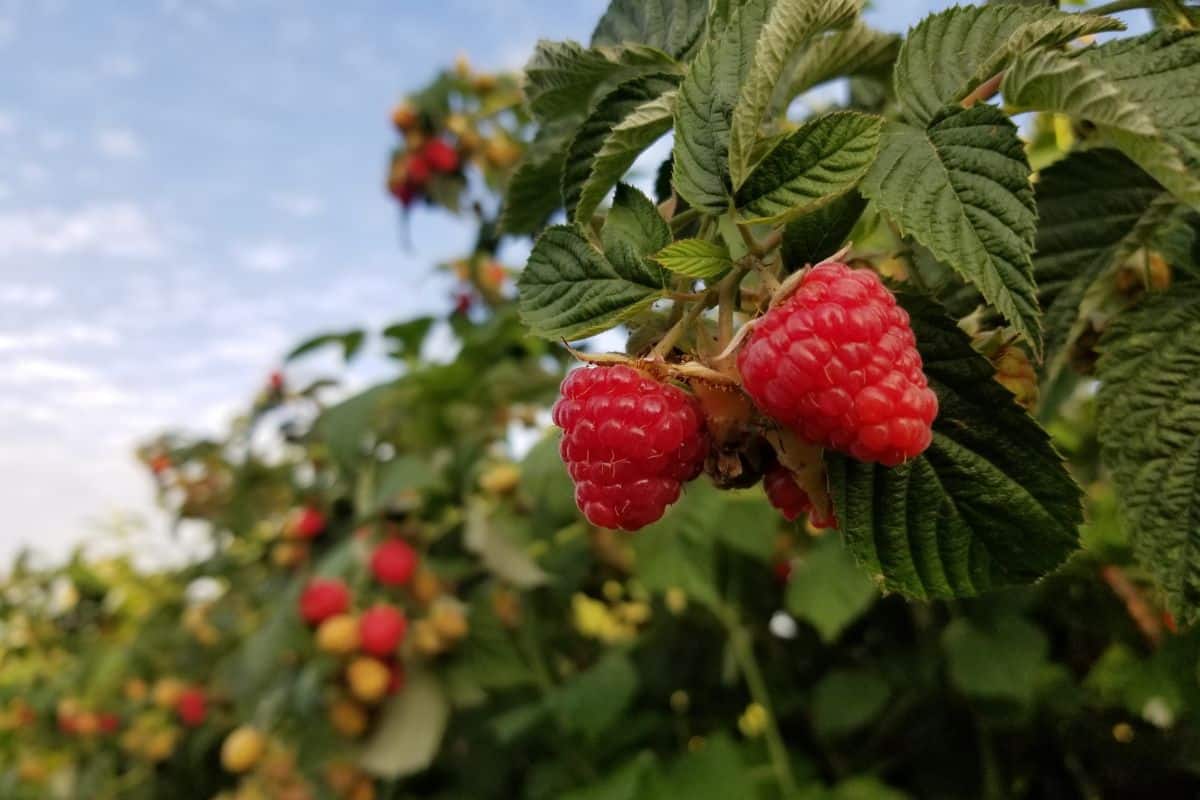Coffee grounds have become increasingly popular among gardeners as a sustainable way to enrich soil and support plant growth. Many gardeners wonder whether their raspberry plants can benefit from this readily available organic material. Understanding how coffee grounds interact with raspberry plants requires examining soil chemistry, plant nutrition, and proper application methods.
Raspberries represent one of the most rewarding fruits to grow in home gardens. These perennial plants produce sweet, nutritious berries while requiring relatively simple care. However, achieving optimal raspberry production depends on providing the right soil conditions and nutrients throughout the growing season.
How coffee grounds affect raspberry soil conditions
Coffee grounds significantly alter soil chemistry in ways that can benefit raspberry plants when used correctly. Fresh coffee grounds typically have a pH between 6.5 and 6.8, which falls within the slightly acidic range that raspberries prefer. As the grounds decompose, they release organic acids that help maintain this favorable soil acidity level.
The decomposition process of coffee grounds creates humus-rich organic matter that improves soil structure and water retention. This enhanced soil texture allows raspberry roots to penetrate more easily while ensuring adequate drainage. Poor drainage can lead to root rot and other fungal diseases that commonly affect raspberry plants.
Coffee grounds also introduce beneficial microorganisms to the soil ecosystem. These microbes break down organic matter and make nutrients more available to raspberry plants. The increased microbial activity creates a healthier soil environment that supports robust root development and overall plant vigor.
However, fresh coffee grounds should be composted before direct application to raspberry beds. Raw grounds can create a water-repellent layer on the soil surface and may temporarily tie up nitrogen during initial decomposition. Composting the grounds for several weeks eliminates these potential issues while preserving the beneficial properties.
Nutritional benefits of coffee grounds for raspberries
Coffee grounds provide essential nutrients that raspberries require for healthy growth and fruit production. The nitrogen content in coffee grounds supports vigorous vegetative growth, which is crucial for establishing strong raspberry canes. This nitrogen becomes slowly available as the organic matter decomposes, providing sustained nutrition throughout the growing season.
Potassium represents another important nutrient found in coffee grounds. This mineral plays a vital role in fruit development and plant disease resistance. Raspberries with adequate potassium levels produce larger, sweeter berries and demonstrate improved tolerance to environmental stresses like drought and temperature fluctuations.
The phosphorus content in coffee grounds supports root development and flower formation. Strong root systems enable raspberry plants to access water and nutrients more effectively. Abundant flowers lead to higher berry yields, making phosphorus particularly valuable for productive raspberry cultivation.
Coffee grounds also contain trace minerals including magnesium, calcium, and iron. These micronutrients support various physiological processes in raspberry plants. Magnesium aids in chlorophyll production, while calcium strengthens cell walls and iron prevents yellowing leaves. Just as why are the leaves turning yellow on my gardenia can indicate nutrient deficiencies, raspberry plants also show visual signs when lacking these essential minerals.
Proper application methods for raspberry gardens
Timing coffee ground applications correctly maximizes their benefits for raspberry plants. Early spring represents the ideal time to incorporate composted grounds into raspberry beds. This timing allows the organic matter to integrate with existing soil before the growing season begins. Fall applications work well too, giving the grounds time to decompose over winter.
The application rate requires careful consideration to avoid potential problems. Apply no more than one inch of composted coffee grounds around each raspberry plant annually. Excessive amounts can create nutrient imbalances or alter soil pH too dramatically. Spreading this amount evenly over the root zone ensures consistent benefits without overwhelming the plants.
Mixing coffee grounds with other organic materials creates balanced compost mixtures that benefit raspberry plants more than grounds alone. Combining grounds with fallen leaves, grass clippings, or kitchen scraps produces nutrient-rich compost. This diverse organic matter supports varied soil microorganisms and provides a broader range of nutrients.
Here are effective methods for applying coffee grounds to raspberry gardens :
- Mix composted grounds into the top 2-3 inches of soil around plants
- Create a thin mulch layer using grounds mixed with other organic materials
- Add grounds to existing compost piles for future garden use
- Blend grounds with aged manure for enhanced nutritional value
- Apply liquid fertilizer made from steeped coffee grounds during active growth
Similar to considerations for will tomatoes grow in 4 hours of sun, understanding environmental factors helps optimize raspberry growing conditions when using coffee grounds as soil amendments.
Maximizing raspberry health with organic amendments
Coffee grounds work best as part of comprehensive organic gardening practices rather than standalone solutions. Combining grounds with other natural soil amendments creates synergistic effects that benefit raspberry plants more than any single material. This integrated approach supports long-term soil health and sustainable berry production.
Regular soil testing helps determine whether coffee grounds provide appropriate nutrients for specific garden conditions. Soil pH monitoring becomes especially important when using acidifying materials like coffee grounds. Raspberries thrive in slightly acidic soil, but excessive acidity can limit nutrient availability and harm plant health.
Water management practices complement coffee ground applications effectively. The improved soil structure from decomposed grounds enhances water infiltration and retention. However, proper irrigation scheduling remains crucial for raspberry success, especially during fruit development periods when plants need consistent moisture.
Many successful gardeners combine coffee ground applications with other proven techniques. How to keep your basil plant alive demonstrates similar principles of organic plant care that apply to raspberry cultivation. Additionally, understanding how different fruit trees respond to organic amendments, such as do peach trees like coffee grounds, provides valuable insights for comprehensive garden management.
Seasonal maintenance schedules should incorporate coffee ground applications alongside other garden tasks. Spring applications support new growth, while fall additions prepare soil for the following year. This consistent approach builds soil fertility gradually and supports healthy raspberry production over multiple seasons.

